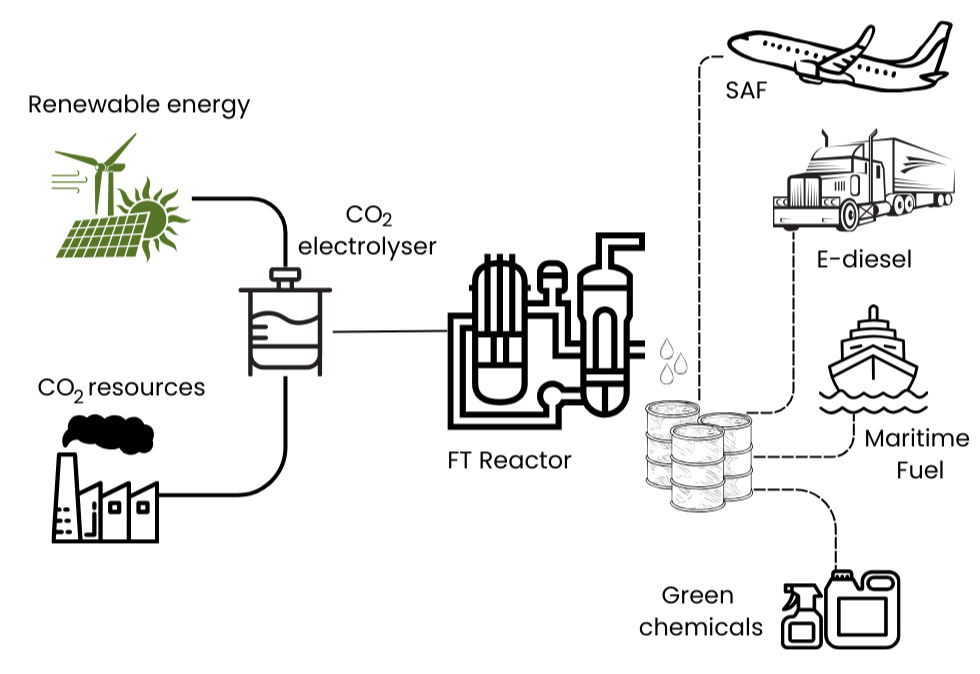top of page

Gurung Fuel

The Problem
Fossil fuels are the largest contributors to global climate change, accounting for over 75% of global greenhouse gas emissions. The transport sector, heavily reliant on liquid fuels, is a major source of these emissions.
Transportation Emissions:
-
Road Transport: This sector accounts for over 77% of total energy demand in transport, with road freight alone responsible for approximately 7% of global CO2 emissions. In the United States, diesel fuel consumption by heavy-duty vehicles accounts for about 9% of total U.S. energy-related CO2 emissions.
-
Aviation: The aviation industry is responsible for approximately 2.5% of global energy-related CO2 emissions. Despite advancements in fuel efficiency, aviation emissions have risen by 70% since 2005 and could potentially triple by 2050 without intervention
-
Maritime Transport: This sector accounts for around 3% of global greenhouse gas emissions. Shipping, which is responsible for transporting about 80% of global goods, could see emissions increase by up to 50% by 2050 due to rising global trade demand.
To achieve net-zero emissions by 2050, CO2 emissions from the transport sector must fall by more than 3% per year to 2030
Our Solution: E-Fuels
E-fuels, also known as electrofuels or synthetic fuels, are produced using renewable electricity, water, and captured CO2. These carbon-neutral fuels can be used in existing internal combustion engines without modifications, making them a practical solution for reducing emissions in hard-to-electrify sectors such as aviation, shipping, and heavy transport.

Using our patented advanced electrolyser system, we produce renewable fuels through CO2 electrolysis, a process powered by renewable energy sources. This process splits water and CO2 into hydrogen (H2) and carbon monoxide (CO), creating a mixture known as syngas. The syngas is then refined through Fischer-Tropsch synthesis into jet fuel (SAF), synthetic diesel, marine fuel and green chemicals.
Carbon Neutral
Reduced GHG Emissions
Drop-in Fuel
Our Commitment to Sustainability
At Gurung Fuel, we are revolutionising the energy landscape by harnessing the power of electrochemistry and engineering. Our mission is to create sustainable, carbon-neutral e-fuels using renewable energy and captured CO2, providing a cleaner alternative to traditional fossil fuels.
Collaborations
By cultivating collaborative relationships among various industry sectors and academic research groups, we've crafted a solution that addresses current demands while proactively preparing for future challenges.
Continuous Optimisation
Our team of experts is continuously developing new methods to optimise e-Fuels production. Through breakthrough science and cutting edge technology, we consistently strive to enhance our processes, delivering SAF, E-diesel and maritime fuel in an eco-friendly and cost-effective manner.


Gurung Fuel
Tyree Energy Building
The University of New South Wales
Sydney NSW 2052
AUSTRALIA
Gurung Fuel acknowledges and pays respect to the past, present and future Traditional Custodians and Elders of this nation and the continuation of cultural, spiritual and educational practices of Aboriginal and Torres Strait Islander peoples.
bottom of page



